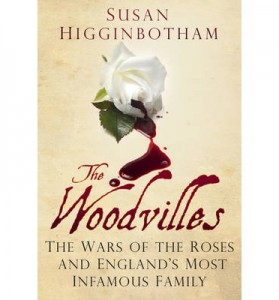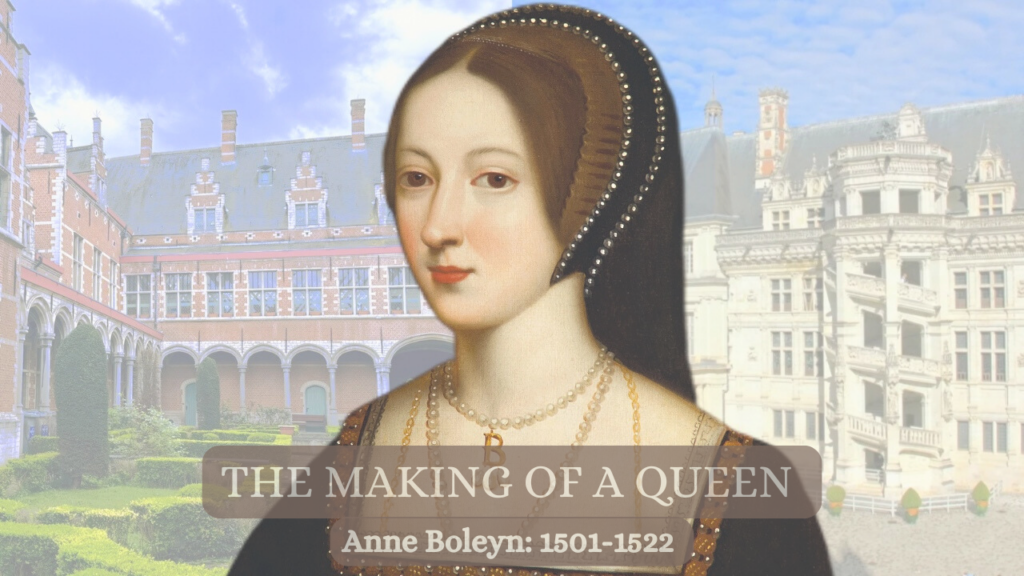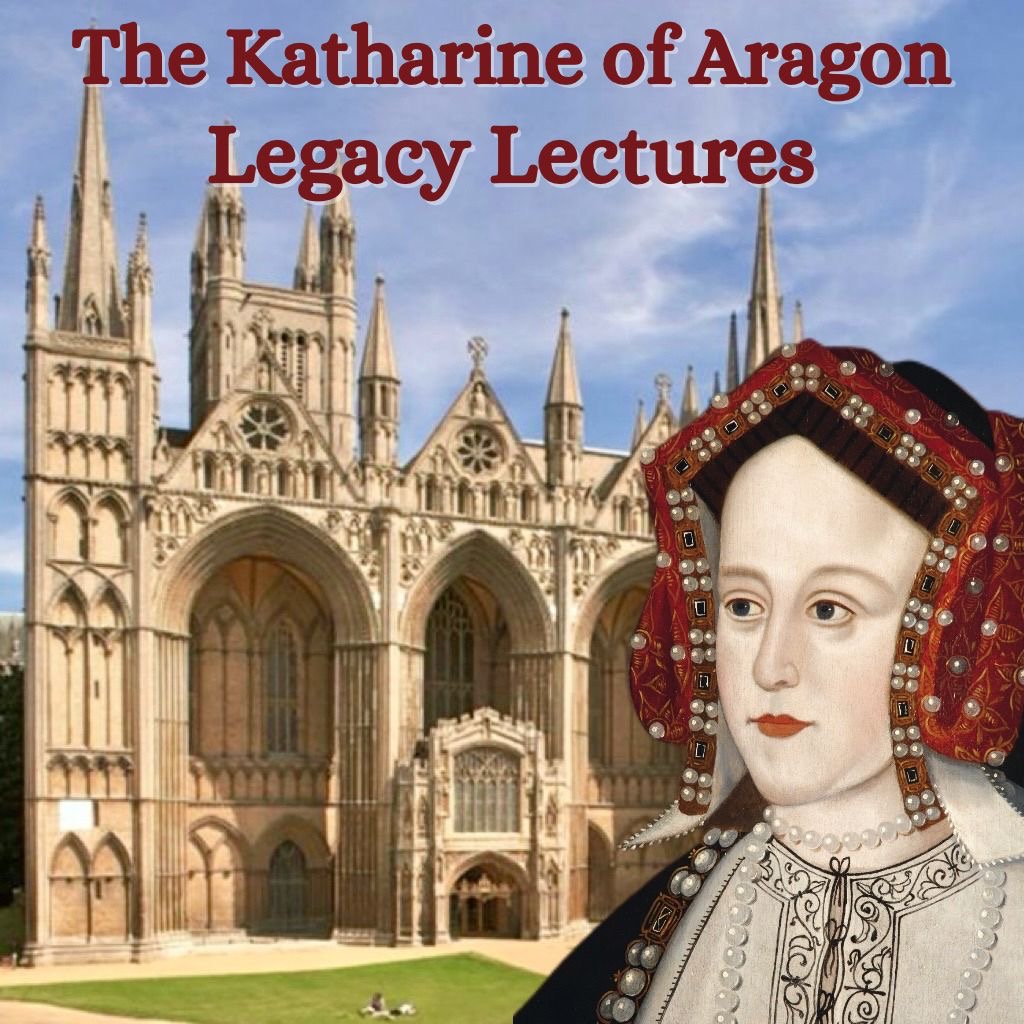 I am delighted to share with you a guest post by Susan Higginbotham, author of The Woodvilles: The Wars of the Roses and England’s Most Infamous Family. To celebrate the release of Susan’s book we are giving away one copy to a lucky commenter.
I am delighted to share with you a guest post by Susan Higginbotham, author of The Woodvilles: The Wars of the Roses and England’s Most Infamous Family. To celebrate the release of Susan’s book we are giving away one copy to a lucky commenter.
Competition now closed!
Conditions of Entry
For your chance to win a copy of The Woodvilles by Susan Higginbotham you must be subscribed to On the Tudor Trail’s newsletter (if you are not already, sign up on our homepage).
Then simply leave a comment after Susan’s guest post below, between now and 27 October 2013.
Thanks to Susan’s generosity, this giveaway is open worldwide!
Don’t forget to leave your name and a contact email.
Good luck!
Elizabeth Woodville’s Move to Bermondsey
By Susan Higginbotham
 In September 1486, Elizabeth Woodville made what would prove to be her last major ceremonial appearance: she served as godmother to her grandson Prince Arthur. Within a few months, she moved to Bermondsey Abbey, a Cluniac monastery on the banks of the Thames.
In September 1486, Elizabeth Woodville made what would prove to be her last major ceremonial appearance: she served as godmother to her grandson Prince Arthur. Within a few months, she moved to Bermondsey Abbey, a Cluniac monastery on the banks of the Thames.
Elizabeth’s removal coincided with, and has often been linked to, a conspiracy against Henry VII which had been building since the previous autumn. The conspiracy, which arose in Ireland, took the unlikely form of recruiting a boy, Lambert Simnel, to impersonate Edward, Earl of Warwick, the young son of the Duke of Clarence. In fact, the unfortunate Warwick was shut up fast in the Tower of London, to which the cautious Henry VII had moved him shortly after winning his crown at Bosworth.
On 1 May 1487, Henry VII, for what is described in classically vague bureaucratic terms as ‘divers considerations’, transferred Elizabeth Woodville’s real properties to her daughter, the queen. According to Polydore Vergil, the decision to ‘deprive’ the dowager queen of her possessions was taken in the midst of a council meeting called at Sheen to discuss the rebellion. Yet the reason Vergil gives has nothing to do with the nascent rebellion, but with Elizabeth Woodville’s 1484 agreement with Richard III to leave sanctuary. The Tudor historian Hall follows Vergil in ascribing Elizabeth’s loss of her properties to her long-ago deal with Richard, adding, ‘By this folly and inconstancy of the queen, she incurred the hatred and displeasure of many men, and for that cause lived after in the Abbey of Bermondsey beside Southwark’. As Elizabeth’s rapprochement with Richard III was old news in 1487, this hardly seems a plausible explanation.
It was not until the seventeenth century, when Francis Bacon wrote his history of Henry VII’s reign, that Elizabeth was explicitly linked to the Lambert Simnel conspiracy:
That which is most probable [is] that it was the Queen Dowager from whom this action had the principal source and motion. For certain it is, she was a busy negotiating woman […] and was at this time extremely discontent with the King, thinking her daughter (as the King handled the matter) not advanced but depressed: and none could hold the book so well to prompt and instruct this stage-play, as she could. Nevertheless it was not her meaning, nor no more was it the meaning of any of the better and sager sort that favoured this enterprise and knew the secret, that this disguised idol should possess the crown; but at his peril to make way to the overthrow of the King; and that done, they had their several hopes and ways. That which doth chiefly fortify this conjecture is, that as soon as the matter brake forth in any strength, it was one of the King’s first acts to cloister the Queen Dowager in the nunnery of Bermondsey . . .
Bacon’s admitted conjecture, arrived at more than a century after the events in question, has for some taken on the aura of historical fact. Yet, as others have pointed out, it defies credibility that Elizabeth would support supplanting her daughter’s husband (and his heir, her new grandson) in favour of the Earl of Warwick. The young earl was the son of George, Duke of Clarence, who in 1469 had been involved in the deaths of Elizabeth’s father and her brother, John. An alternative explanation that has been offered is that Elizabeth believed that Simnel was not Warwick, but her vanished son Edward V. While such a belief certainly would give Elizabeth a motive, the argument is undermined by the failure of any contemporary or near-contemporary source to mention such a claimed identity for the pretender, or such a motive for Elizabeth. Moreover, as the rebellion attracted close associates of Richard III such as Francis, Viscount Lovell, it is difficult to imagine any of them fighting to restore Edward V to the throne when they themselves had helped remove him from it in the first place.
It is possible, however, that Henry VII’s seizure of Elizabeth’s properties was linked to his suspicions of her son, Henry Grey, Marquis of Dorset. According to Vergil, the king, preparing to meet the rebels in battle, arrived at Bury St Edmunds, where, believing Dorset to be privy to the conspiracy, he arrested him and sent him to the Tower. Bacon amplified the story:
And being come to St Edmund’s-bury, he understood that Thomas Marquis Dorset […] was hasting towards him to purge himself of some accusations which had been made against him. But the king, though he kept an ear for him, yet was the time so doubtful, that he sent the Earl of Oxford to meet him and forthwith to carry him to the Tower; with a fair message nevertheless that he should bear that disgrace with patience, for that the King meant not his hurt, but only to preserve him from doing hurt either to the King’s service or to himself; and that the King should always be able (when he had cleared himself) to make him reparation.
Unlike his mother, Dorset did stand to gain from putting Warwick upon the throne: Dorset had been Warwick’s guardian during Edward IV’s reign and had probably hoped to marry him to one of his many daughters. That old tie, combined with Dorset’s defection from Henry during his exile, might have been enough to awaken the suspicions of the jittery king, who after all had good reason to know how easily a ruler could be pushed off his throne. That Dorset was indeed under a cloud at this time is confirmed by the king’s failure to summon him to Parliament that autumn. Nonetheless, whatever reservations the king had about Dorset’s loyalty, they did not extend to the whole of the Woodville family: Elizabeth’s younger brother Edward Woodville not only fought for the king against the rebels but held high command in the king’s army. Furthermore, if Henry did suspect Elizabeth of plotting, Bermondsey, an abbey conveniently located on the Thames, seems an odd place to stow her; there were more secure and more remote locations to which she might have been sent.
It is quite possible that Elizabeth’s removal to Bermondsey was prompted chiefly by financial concerns on the part of the king. The order transferring Elizabeth’s estates is sandwiched in among a number of routine matters of royal business, suggesting that the order had likewise been an administrative matter rather than a security measure. Due to chance and political upheavals, it had been a century since a married king had faced the situation of maintaining a queen dowager while assuring his own queen of her proper landed endowment. Henry solved this problem by transferring Elizabeth Woodville’s lands to her daughter; in recompense, Elizabeth received an annuity of 400 marks, raised on 19 February 1490 to £400. While a different king might have treated Elizabeth Woodville more generously, the events of the past few years had left England on shaky financial ground, and Elizabeth could at least console herself that her daughter was receiving a suitable endowment. She was also not the first queen dowager to retire to a religious house: Catherine of Valois, Henry V’s widow (and Owen Tudor’s wife) had spent her last months at Bermondsey, apparently due to ill health, and Henry III’s widow, Eleanor of Provence, spent her last years as a nun at Amesbury.
Moreover, Henry may have initially thought that Elizabeth would soon have no need of an endowment in England, because on 28 November 1487, he and the Scottish king, James III, agreed that the latter would marry Elizabeth. The negotiations had been carried on pursuant to the three-year truce that the English and the Scots had formed the previous July. It seems highly unlikely that Henry would have agreed to such a match had he believed that Elizabeth had been plotting against him. James’ death in June 1488, however, kept Elizabeth from becoming the Queen of Scots.
Following Elizabeth’s removal to Bermondsey, we have few glimpses of her. We do know, however, that in 1489, Elizabeth Woodville was staying with Elizabeth of York when the latter was awaiting the birth of her daughter Margaret. This belies Bacon’s later claim that she had been ‘banished [from] the world into a nunnery; where it was almost thought dangerous to visit her or see her’. Clearly, she had not been shut off from all contact with her family, although the extant records furnish no clue as to how often she saw or heard from them. Elizabeth of York’s privy purse expenses, which would give us an idea as to whether messages or visits were exchanged between mother and daughter, do not survive for this period (or indeed for any other period other than the last year of the queen’s life), and heraldic accounts by their very nature were concerned only with court ceremonies, not day-to-day interactions.
In June 1491, Elizabeth of York bore a second son, Henry. The birth of the future Henry VIII, the “spare,” did not provoke much comment at the time, and we do not know whether Elizabeth Woodville was a witness to his birth. She could not have left any lasting impression on her grandson, for she died a year later at Bermondsey, leaving Elizabeth and her other children her blessing. Henry VIII could at least look at his grandmother’s portrait, however, for it hung at his palace of Westminster.

















I am excited to learn factual information about the Lancastrians and Yorkists. I have just been given the information from our family tree. So many of the Tudors, Descendents of William I ,Owen Tudor and his Welsh heritage,Catherine Valois and her French heritage, etc…..both sides of War of the Roses are my ancestors. So I am enthralled, and want to learn. Not to judge, they are family, but to understand….
She was nothing if not a women who left her mark on history.
thanks for the chance to win
The history of the Woodville’s is fascinating and I so hope I win the book!
So interesting! I love the history of the monarchy, and especially the Beaufort-Woodville-Tudor stories!
I love to be lost in this world of intrigue and romance – marvellous!
I have become obsessed with the Elizabeth Woodville and her family….what a great read
Love to read accounts of England’s History. Thank you for such interesting info.
You say that “the argument is undermined by the failure of any contemporary or near-contemporary source to mention such a claimed identity for the pretender”. However, didn’t people in Dublin claim at the time that they had King Edward V? If the rebellion was lead by her son, then Henry would have had good reason to remove Elizabeth to a convent. If Edward was then killed in ensuing battle, then Henry could have let Elizabeth out to visit her daughter in childbirth. Also perhaps he stole her property as a punishment for her conspiracy.
Thank you for this inspiring post. I have also wondered why Henry chose to have Elizabeth sequestered to Bermondsey. It appears he allowed her to have visitors as well, although I’m sure he had spies and access to her correspondence. It always pains me to hear of spirited older women losing their independence and influence to powerful men. What fun to think of Elizabeth proving to be a true “Monster-in-law” to the miserly, uneasy Henry.
Cant get enough about the war of the roses! Have added this one to my wish list.
Elizabeth Woodville really and truly loved Edward IV. So wonderful
Looks like a great read! Would love to win this book!
What a wonderful blog on a most controversial Queen. I look forward to reading Ms. Higginbotham’s book on Elizabeth. Its wonderful to finally have a constructive perspective. Enjoyed the blog!
Have been reading many book about the Cousins War, and the Tudors. It fascinates me how many intrigues happened and how the King ( no matter which one) was unable to trust anyone. No wonder every died so young……stress probably killed them all
The Tudors are a fascinating combination of the best and the worst of all of their ancestors: Plantagenets; Yorks and Lancasters! What a dynasty! Can’t wait to read more!
Natalie, you made me discover a new world, and I truly appreciate your work!
Thanks as always Natalie and Susan for this chance!
A warm hug from a big fan of yours, from Argentina!!!
I am reading ‘The Stolen Crown’ right now and am waiting for this new book on the the Woodvilles with great anticipation!
Thank you for the chance to win this interesting book. I would like to learn more about Elizabeth Woodville.
I am very excited for this chance to win, I am eager to read more about this period and to inform myself on the Woodvilles.
Thanks Susan!
A riveting read about a facinating woman, can´t wait read this book!
I am so excited to learn that Elizabeth Woodville lived at an Abbey in Bermondsey…I lived there once too (Canada Water), and now I feel like we have something in common! So cool! I love the story of her life and am reading this as soon as I finish “The White Queen.”
Always a pleasure to recieve recommendations of historical authors I have yet to discover.
Susan´s books looks like a name to be adding to my list.
Thank you “On The Tudor Trail” for continued updates and fab tweets!.
Another new book I look forward to reading!
Natalie, thank you for the many opportunities to share thoughts and the giveaways chances are a wonderful touch. Take Care…I will be writing soon!!
I have my fingers crossed!!!
a big hug!
To me, true history is always so much more riveting and interesting than any fiction we could dream up! Love reading about the War of the Roses and the families involved.
Susan´s books are so interesting, you can`t put them down…. I loved The Stolen Crown!!!! So it would be great to have the opportunity to read this nonfiction book about the war of the roses!
Enjoyed the review, would love to read more!!
Keep the stories coming Susan!
Thank you Natalie..!!!!! 😉
I am so excited about this book. I seem to get more and more entranced by Tudor history every time I read another book on them.
Thank you so much, Natalie and Susan for the chance to win this book!
Please please please… I have never won anything in my life!!! pick me!!! 🙂
Good luck to everyone!!!!
I just adore Susan´s work, she brings her characters to life.
I just finished her novel Her Highness, the Traitor and look forward to reading all of her novels. Susan is a truly exquisite writer!.
Thanks Natalie and Susan for this opportunity!!! I´m crossing my fingers
A warm hug from a big fan of yours!
Gabriela!
Very interesting indeed. I love reading anything and everything about the Tudor Dynasty from it’s earliest beginnings. Thank you for taking the time to give us some insight into one of the most scandalous families!
Thank you Natalie! keep on doing what you do the best… writing for all of us!
I am fascinated with Tudor history and read everything I can lay my hands on, fictional or not.
Thanks Natalie for all the giveaways!!!! you are the best!!! and obviously to Susan too!
I really want to win a copy of this book!!!!! I´m a great Tudor fan!!! and I love this site!!!
Great article about Elizabeth.
Thanks for the opportunity and keep on writting Natalie!!!!!!!!!!!
Oooh I can’t wait to get my hands on this book!!!!!!
Love, love, love the Woodvilles. Fabulous article
While I have read about the Woodvilles I have done far more reading about the Tudors. I would love to read more about this family that helped usher in that era of English history. Thanks for the wonderful post and the great giveaway!
This looks like an absolutely wonderful read! Thank you so much. 🙂
The story of Elizabeth Woodville, her marriage, her children and her involvement in English politics hs something that has always fascinated me. She certainly was no “innocent”, but managed her life to ensure that she received what she wanted. It must hav ebeen terribly frustrating to her when her two sons were taken from her by Richard III. As the great grandmother of Elizabeth 1, I can’t help but to wonder just how much of her personality appeared in Elizabeth 1.
I am completely enthralled with the Woodvilles – especially Jaquetta. I would love to learn more about this important family!
Elizabeth Woodville has always been, and remains my favorite Royal.
Have read your other books, can not wait to add thus one to my library. It sounds exciting and your writing keeps all enthralled.
Elizabeth Woodville has always been and remains my Favorite Royal.
i love everything having to do with the war of the roses and the tudors. would make my day to win this book
I have recently begun delving into the history of Elizabeth Woodville (my first interest being Elizabeth I). I love reading the finer details and being able to debate over possible motives….thank you for the insight given, I hope to learn more about such a fascinating woman!!
I would love to read this book….
I LOVE TUDOR HISTORY AND WOULD LOVE LOVE LOVE TO HAVE THIS BOOK!!!!!!!!!!!!!!!!!!!!!!!!!!!
Very interesting. Love reading anything to w/ the Tudors.Would be a great book to add to my never ending colloction. thank you for the chance!!!
I am currently reading William Penn’s outstanding account of the last part of Henry Vll’s reign – Winter King. Something that comes across very clearly is the insecurity Henry felt about his hold on the throne, and his astute accumulation of wealth. Elizabeth of York was his best asset and he was beset by other, some would say better claimants to the throne as well as spurious pretenders like Lambert Simnel and Perkin Warbeck, claiming to be respectively the young Earl of Warwick and Richard, Duke of York (the younger of the “Princes in the Tower).
So I can quite believe that he would want both to keep in with Elizabeth Woodville and yet make sure that her property was available to him through the Queen. So glad that someone has written another book about the Woodvilles.
I’m reading about Elizabeth Tudor right now.
Elizabeth Woodville is so fascinating. Thank you for the article!
I love everything to do with the Tudors and have been interested in the Wars of The Roses for a while now. I would love to win this book!
Can’t wait!!! After seeing The Tudors..I fell in love with this time period all over again!!!!
I cannot wait to read the book. There is much to learn about this very important family. Thank you!
My daughter and I have been reading a lot of the books written about the War of the Roses. We were in England 2 years ago and going back next year.